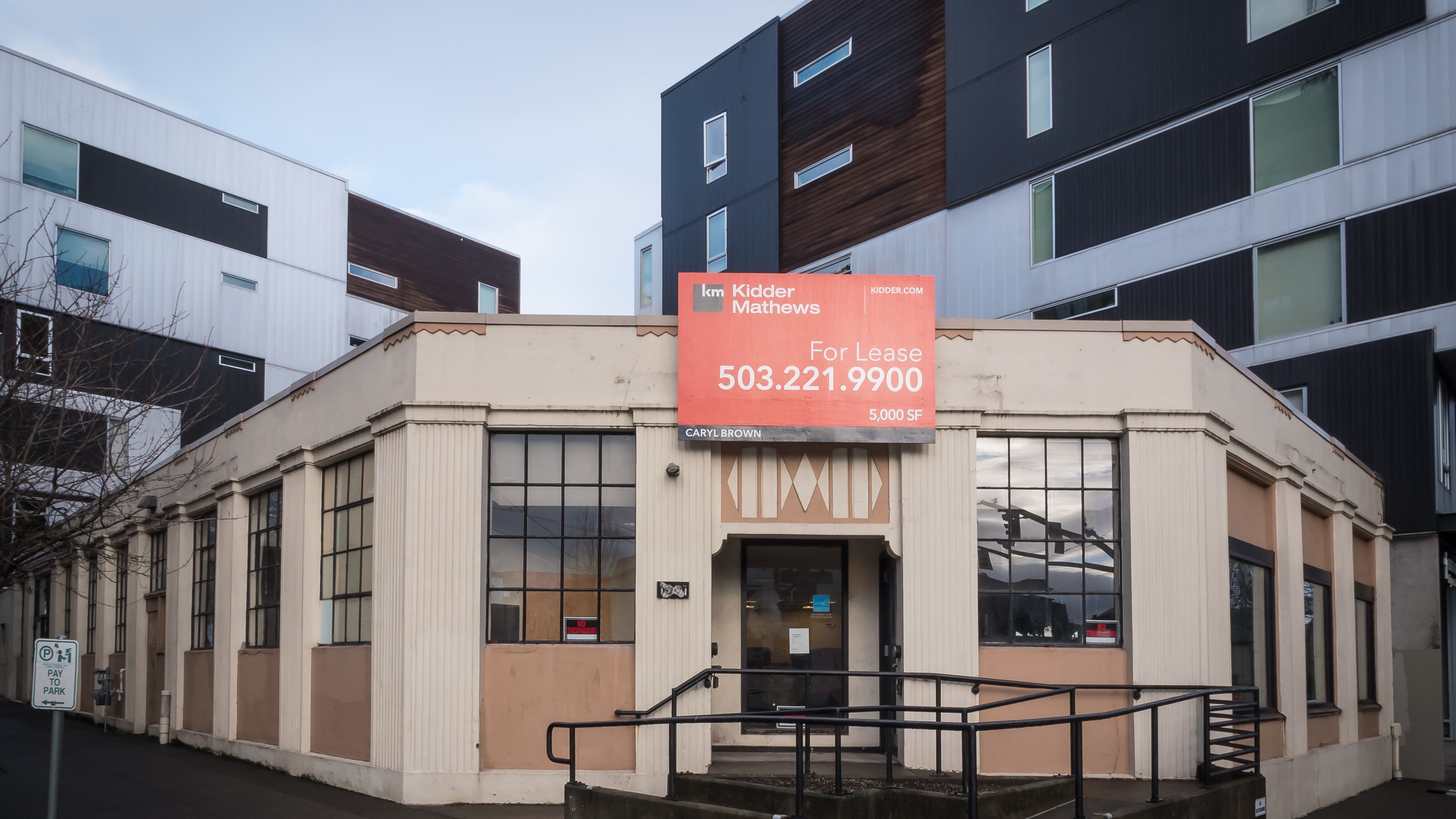Problem: Downtown offices are empty.
Idea: Offer a 20-year tax abatement for developers who turn those buildings into apartments.
Over the past two years, Portland’s downtown core has become a shell of its former self. This summer, 55% fewer downtown workers walked the streets on any given day than before the pandemic. Boarded-up storefronts line the sidewalks, and dozens of office buildings sit mostly empty.
It’s an extreme version of a problem confronting all U.S. cities: Telework has emptied cubicles, and the white-collar workers who’ve tasted freedom aren’t coming back. That’s especially true in the tech sector, where remote work has become an expectation and a recruiting bonus. Downtown Portland’s biggest commercial footprint? Amazon. You do the math.
So what do we do with all that office space? Urban planners urge something that’s difficult, but not impossible: convert a selection of those buildings into housing.
This summer, the mayor’s office received a report from a local real estate expert that listed 14 office buildings ripe for conversion. They were mostly older and smaller office buildings without sprawling layouts and massive floor plates.
Wheeler’s office also recently commissioned an analysis by ECONorthwest and architectural firm Gensler that will look at downtown Portland’s office buildings and study the financial and structural feasibility of converting them to apartments.
“Any of the quarter-block or half-block historic office buildings are prime candidates. There’s going to be winners and losers in demand for what’s left of the office stock,” Brian Pearce of Unico Properties tells WW. “Older and smaller buildings are likely to be more vacant than the other buildings.”
Problem is, those conversions are incredibly expensive—a recent New York Times story reported they could cost $500 a square foot. Conversions are so costly—new HVAC systems, plumbing, mechanical and electrical infrastructure, and required seismic upgrades—that some experts say a developer would have to purchase a building at less than $100 a square foot to make conversion pencil out.
But there’s a way to do that (or at least get part of the way there): an aggressive tax abatement program. That’s why a 20-year property tax abatement passed at the state level is a must.
In the 1990s, New York passed such a tax abatement program to spur conversions. Developers in lower Manhattan used the program aggressively to convert 13% of its office space into residential. The program offered a one-year exemption from property taxes during construction and then a series of partial tax abatements for the buildings for more than a decade after.
“The mechanics of moving office to residential is very complicated, and it’s very, very expensive. What you have to pay to justify a conversion isn’t getting the building for free, but it’s close,” says David Squire, executive vice president of Newmark brokerage. “The biggest concern is that the city doesn’t act aggressive enough fast.”
Oregon exempts from property taxes those institutions that do the important work of building community: churches and nonprofits. In a severe housing shortage and a burgeoning homelessness crisis, turning blocks of empty offices into housing meets the same level of importance.
We can look to other cities for blueprints.
This year, California allocated $400 million in grants to developers willing to convert offices to residential use. The mayor of Washington, D.C., advocated a 20-year tax abatement for such conversions. New York City convened a task force that will come up with pitches for how to ease regulatory burdens for conversions.
Charlie Kuntz, managing director in Portland of Hines Development, is overseeing a conversion in downtown Salt Lake City of a historic building that he says was " deemed obsolete,” meaning Hines bought it dirt cheap.
“It’s a bit of a needle in a haystack,” Kuntz says. But Hines is studying some buildings in downtown Portland that could convert, and even walked some of Wheeler’s staff through its Salt Lake project. “We’re doing some of those studies now to understand what seismic upgrades would cost.”
The next opportunity for Portland comes during the upcoming session of the Oregon Legislature, where other bills addressing conversions are already slated for discussion.
Industry experts say the city and state will have to work in conjunction to build a robust package of incentives, including waiving system development charges and tweaking building code related to seismic upgrade triggers (the mayor’s office is looking to pass such policies already), and even perhaps a state loan fund that cities could borrow from to fund conversions and pay back over time. That bill, crafted by state Rep. Pam Marsh (D-Ashland), is already in the hopper for this year.

